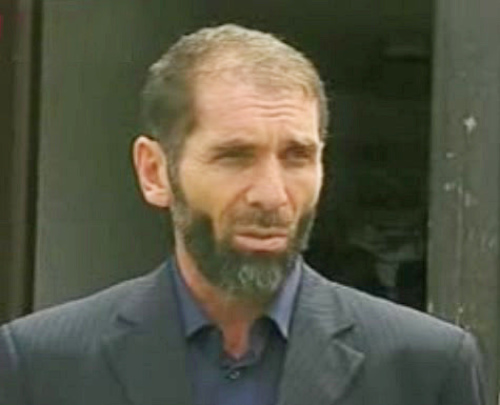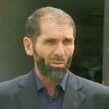
Extrajudicial Arrests and Killings on the Rise in Ingushetia
Publication: Eurasia Daily Monitor Volume: 10 Issue: 33
By:

Reports of killings arrive from Ingushetia practically every week. During a Federal Security Service (FSB) operation on February 12, the officers killed a local resident. Security officials identified the slain man as Magomed Gaitukiev, a 40-year-old who had been tried in court for aiding the insurgents and claimed he had fired at the FSB forces (https://ingnews.ru/index.php?option=com_content&view=article&id=10168:2013-02-12-13-41-47&catid=5:2009-01-28-06-44-03&Itemid=7). Ingush society had not yet come to grips with what happened to Gaitukiev as word spread of the killing of Sultangeri Khashagulgov, a former deputy minister in Ingushetia’s government. The ex-official was the brother of Yakub and Isa Khashagulgov, who are suspected of involvement in the terrorist bombing at the central market in Vladikavkaz, North Ossetia, in September 2010. Sultangeri Khashagulgov was killed on February 13, as his home was being searched by police and security service personnel in the city of Nazran. According to the police, when Khashagulgov learned he was going to be arrested and taken to Vladikavkaz, he pulled out a handgun and was killed on the spot in the ensuing shootout (www.kavkaz-uzel.ru/articles/220040/). There have been hundreds of similar incidents in Ingushetia in recent years. However, this one was a very special case since the Khashagulgov family has gained significant notoriety in Ingushetia during the past two years.
Sultangeri’s older brother Isa was arrested in September 2010; the FSB branch in Ingushetia declared Isa the head of the insurgency in Ingushetia and the successor to Emir Magas (a.k.a. Magomed Yevloev, Ali Taziev), who had been arrested (www.ri-online.ru/index.php/component/content/article/1341——–l-r). Neighbors and others who knew Isa Khashegulgov said they could not believe the 55-year-old father of six was the head of Ingushetia’s jamaat. After the authorities failed to prove his alleged ties, he was accused of staging the Vladikavkaz market terrorist bombing on September 9, 2010 (www.gazeta.ru/social/2010/10/12/3427775.shtml). Investigators claimed he was the mastermind of that attack, in which two dozen people died (www.regnum.ru/news/1335255.html). In April 2012, another member of the extended Khashagulgov family, Islam Khashagulgov, was sentenced to 24 years in prison for the same crime. A little later, Isa Khashagulgov’s brother, Vakha Khashagulgov, was sentenced to 16 years in prison for aiding the attack supposedly organized by his brother (https://vestikavkaza.ru/news/58110.html).
During the investigation of the Vladikavkaz terrorist attack, the authorities constantly changed the names of the suspects. Two dozen people were accused of participating in the bombing, which is a surprisingly large number for such an attack (https://roks-alana.livejournal.com/245659.html).
On February 9, four days before Sultangeri Khashagulgov’s killing, his other brother, 32-year-old Yakub Khashagulgov, was arrested (www.kavkaz-uzel.ru/articles/219892/). A day earlier, police had searched all the houses belonging to Khashagulgov’s family across Ingushetia, including Sultan Khashagulgov’s house. Despite the search on February 8, three days later, FSB officers came to Sultangeri Khashagulgov’s house again with the intention to detain him after the fresh search.
Back in March 2011, an attempt was made on Sultangeri Khashagulgov’s life after he promised to take people to the streets to protest extralegal arrests, kidnappings and killings in Ingushetia (https://vladikavkaz.bezformata.ru/listnews/sovershenie-terakta-na-rinke-vo-vladikavkaze/9556055/). Just hours before his killing nearly a year later, Sultangeri Khashagulgov told France’s RFI radio that out of principle he would not leave Ingushetia and that he would possibly be killed (www.russian.rfi.fr/kavkaz/20130212-my-ne-terroristy). After he was killed, officials promptly announced that Sultangeri Khashgulgov had been involved in the explosion at the central market in Vladikavkaz (www.bbc.co.uk/russian/russia/2013/02/130215_ingushetia_minister_killed.shtml). It is still unknown how many people planned the terror attack in Vladikavkaz and how many of them will be killed.
After Sultangeri Khashagulgov was killed, his father, Lokhan Khashagulgov appealed to human rights organizations for help. According to Lokhan Khashagulgov, law enforcements agents had, during the search of his son’s house, “tied the hands of Sultangeri and his oldest son, 22-year-old Magomed, who is a student at a Moscow university, and put them against the wall.” He added: “Two daughters and their aunt were sent to the neighbors. The police mocked my grandson, threatening to shoot him. Then the neighbors and grandchildren heard shooting. After a couple of hours, an ambulance car arrived from Vladikavkaz. Then they took my grandson back and showed him his slain father. They told him: ‘He resisted’” (www.kavkaz-uzel.ru/articles/220153/). Such incidents happen in Ingushetia over and over again, with law enforcement personnel claiming they had to kill suspects because they resisted arrest.
It appears that the Khashgulgov family and their whole clan are being persecuted by the authorities. It is hard to explain otherwise why Ingushetia’s media went so hysterical after one of Isa Khashagulgov’s daughters decided to go to school wearing a hijab (www.wellnews.ru/politics/988-lider-imarata-kavkaz-poplatilsya-za-xidzhab-docheri.html). The Khashagulgovs believe they are being targeted on purpose, and they even held a special meeting of their clan (a.k.a. teip) at which they proposed holding talks with the government (https://ingushetiyaru.org/news/36030/).
Thus, multiple extrajudicial arrests and killings are making the crisis in Ingushetia more and more acute. Returning to the historical roots of Ingush society is a popular topic in Ingushetia as people try to idealize the past. There is a greater debate underway in the republic about whether to build the society on the basis of traditions or unite on the basis of Islam. The authorities’ policies do not leave much choice for ordinary people because the government itself is radicalizing young people with its counter-productive actions. This means that in the near future we will see the situation in the republic grow worse, not improve.




